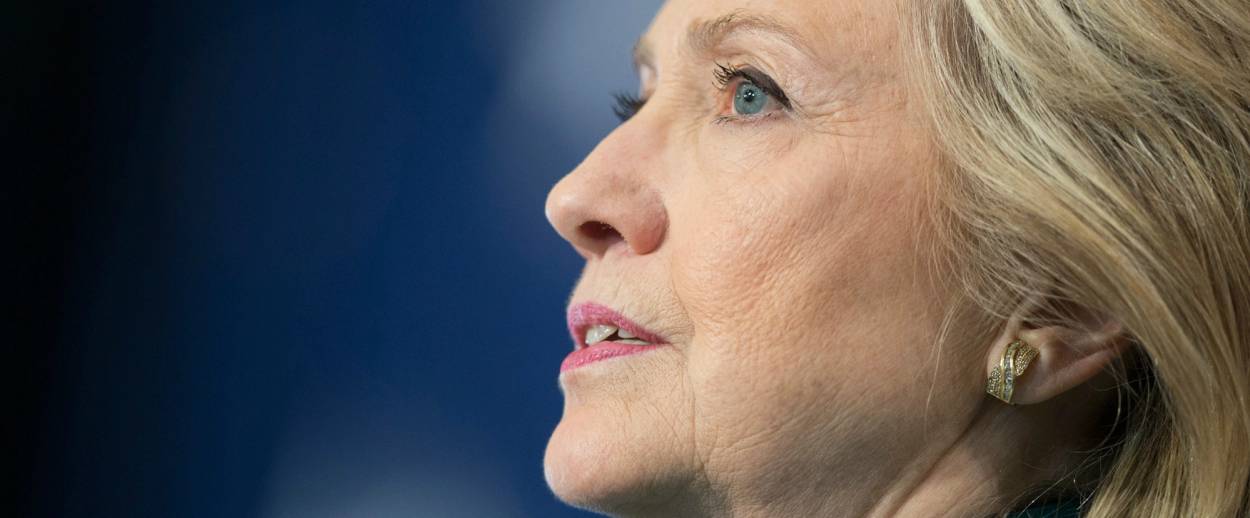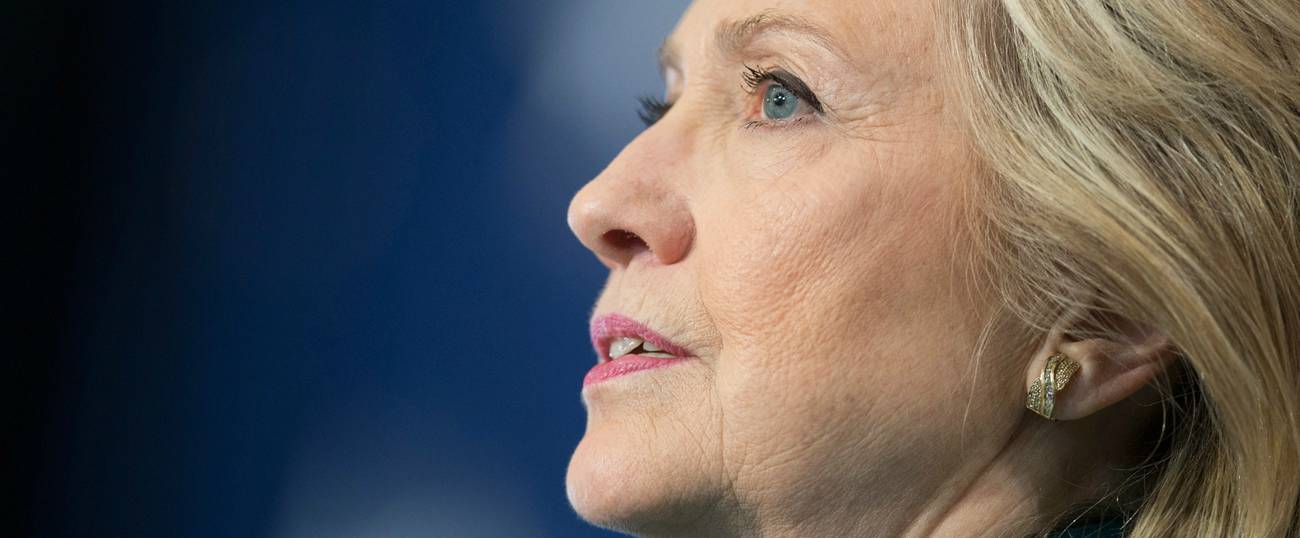Why Hillary Clinton’s Anti-BDS Letter Matters
The presidential hopeful showed her support for Israel without repudiating any of Barack Obama’s policies




On July 2, Hillary Clinton fired an opening salvo against the Boycott, Divestment and Sanctions movement against Israel. It took the form of a letter sent both to Israeli-born mogul Haim Saban, a longtime supporter, and to Malcolm Hoenlein, the executive vice president of the Conference of Presidents of Major Jewish Organizations.
In the missive, which was subsequently leaked to the media, Clinton inveighed against the BDS movement, and pledged her support to efforts combating it. “BDS seeks to punish Israel and dictate how the Israelis and Palestinians should resolve the core issues of their conflict,” she wrote. “This is not the path to peace.” Instead, Clinton reaffirmed her commitment to a two-state solution, which “can only be achieved through direct negotiations between Israelis and Palestinians.”
“From Congress and state legislatures to boardrooms and classrooms,” the likely Democratic presidential nominee said, “we need to engage all people of good faith, regardless of their political persuasion or their views on policy specifics, in explaining why the BDS campaign is counterproductive to the pursuit of peace and harmful to Israelis and Palestinians alike.”
These statements are not surprising; they reflect Clinton’s long-held pro-Israel views. They also represent the international consensus on the Israeli-Palestinian conflict, which spurns boycotts in favor of bilateral negotiations. But the letter is newsworthy for another reason—not so much because Clinton’s reiterated of her support for the Jewish state, but rather for the way she chose to do it: by bashing the BDS movement.
In one sense, this is a natural choice. With its many openly anti-Semitic adherents—some have advocated for Jews to be expelled from South African universities, others blamed the Mossad for the Charlie Hebdo attacks—the Israel boycott movement makes for an easy target. But just as importantly, repudiating BDS offers Clinton a way to demonstrate her pro-Israel bona fides without repudiating any of the policies of her former boss, Barack Obama.
Obama has sparred with Israel’s government from almost the moment he took office, taking strong stands against the country’s settlement policy and breaking with it on Iran diplomacy. Yet tellingly, in her letter designed to showcase her support for Israel, Hillary mentions none of this. Instead, she goes after BDS with enthusiasm, while quietly passing over the opportunity to part with her president. In this way, by serving as a universally reviled anti-Israel punching bag, the BDS movement has given liberal supporters of Israel a way to assert their pro-Israel credentials without having to compromise on their criticisms.
Traditionally, left-wing supporters of Israel have not had it this easy. In the past, President Obama and his Jewish allies like J Street have found themselves on the defensive over their critiques of Israeli policy in the occupied territories. Branded as “anti-Israel” by more hawkish critics, these left-wing Zionists often responded by brandishing their pro-Israel bona fides, awkwardly alternating between full-throated pro-Israel pronouncements and pointed pokes at the country’s policies.
But the BDS movement has changed this dynamic. By providing an anti-Israel counterweight to the settlement movement, BDS has enabled liberal Zionists to present themselves as the moderate middle opposed to extremists on both sides. In this manner, BDS has gifted liberal Zionism with a logically consistent rationale for its blend of pro-Israel advocacy and criticism. Its adherents can now say they are for a two-state solution, and against radicals—both Israeli and Palestinian—who seek to impose their own zero-sum vision of a one-state solution. As such, so long as they are battling BDS, left-wing supporters of Israel but opponents of its settlements can no longer be so easily cast as fairweather friends of the Jewish state.
Ironically, the leaders of the BDS movement have openly advocated against the two-state solution, and sought to weaken the bonds between liberalism and Zionism. Yet, as Clinton’s letter shows, the boycotters may instead be strengthening the prospects of both.
Read Clinton’s letter below:
Previous: What We Can Learn About Hillary From Her Emails About Israel
Hillary Clinton Calls for Reducing U.S.-Israel Tensions
Yair Rosenberg is a senior writer at Tablet. Subscribe to his newsletter, listen to his music, and follow him on Twitter and Facebook.